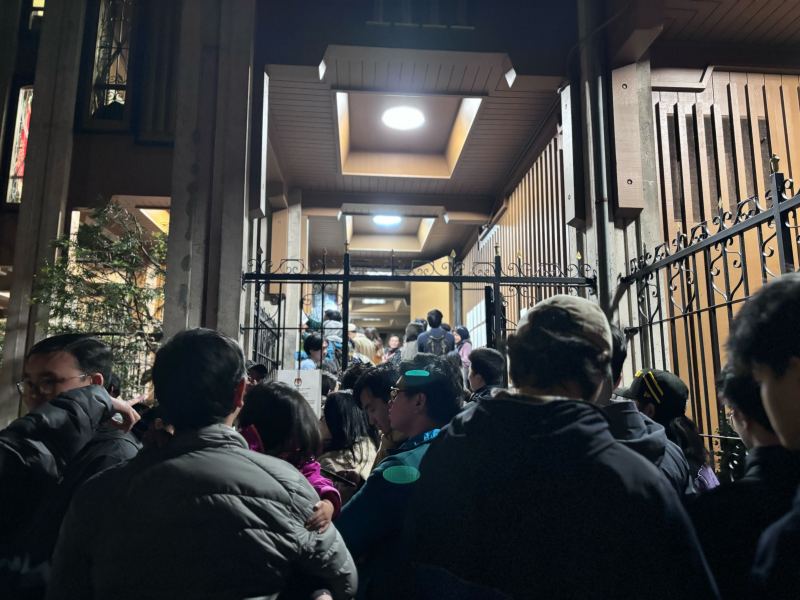A former military general accused of human rights violations is projected to become Indonesia’s next president in the country’s fifth-ever democratic election. Several Indonesian students at Stanford expressed concerns about what this means for the country’s future, but some urged optimism.
Prabowo Subianto, the projected winner with 58% of the vote based on preliminary polling, will replace current President Joko Widodo as leader of the fourth most populous country in the world. Widodo will leave office in October after serving the nation’s two-term limit, with an 80% approval rating from the Indonesian public thanks to policies that people believe paved a path toward steady economic growth.
Though the nation’s current president gave a de facto endorsement of Subianto, who serves as his defense minister, the projected winner’s campaign is tainted by his human rights record. He faces accusations of abuses against pro-democracy activists, with some experts fearing his election would signal the “death of democracy” in Indonesia.
Indonesian Stanford students traveled to the Indonesian consulate in San Francisco in early February to cast their ballots, joining a queue of eager voters wrapped around the building. Norman Joshua, an Indonesian postdoctoral fellow at the Stanford Asia-Pacific Research Center, expressed appreciation for the country’s direct democratic procedure, while admitting he is “worried” about the expected results.
“Let’s say the election was fair and square, everything is good,” Joshua said. “But… [Prabowo] is still a symbol of the former New Order, [Suharto’s] authoritarian regime. And honestly, as a historian, I just cannot ignore that.”
Like Joshua, Mansur Areif, a postdoctoral scholar at Stanford Intelligent Systems Lab, could not ignore the past, including a candidate’s own historical policies. “I’m trying to look at the track record,” Arief said. “If any of the candidates has corruption history, or something even tangential that leads to corruption, that will affect how I vote.”
In Indonesia, fear of acts of corruption like vote-buying, in which political party workers pay citizens to vote for a certain candidate, looms large. 92% of Indonesians surveyed in 2020 think government corruption is a big problem in the country, according to the Global Corruption Barometer.
“It’s very hard to uproot something that’s already ingrained, already in tradition,” Joshua said about corruption.
Hanif Sulaiman, an Indonesian Ph.D. student in earth system sciences said the country is on “a dangerous path.”
“Threats to [Indonesia’s] democracy…are both, almost equally, represented in both the President and Vice President-to-be,” Sulaiman said.
Subianto’s chosen vice-presidential running mate is 36-year-old Gibran Rakabuming Raka, the son of current president Widodo. Some see his vice presidential candidacy as the manipulation of the law and the beginning of a family dynasty.
For Raka to be deemed eligible to run, the country’s Constitutional Court had to intervene. In October, a 5-4 vote by the court allowed candidates younger than 40 to run for either president or vice president if they have previously been elected into an office, bypassing the constitution’s original threshold of 40.
Promptly after, Subianto’s party championed Raka as the vice presidential candidate.
The deciding vote was casted by the now-ousted chief justice and Raka’s uncle Anwar Usman, who was removed from the court by an ethics panel shortly after the ruling. Regardless, the ruling still stands, allowing Raka to run alongside Subianto, boosting campaign support among his father’s former voter base.
“We have democracy, our law works, good governance works, but then the problem is the ethics,” Joshua said. “Putting your kid as vice president, and then changing all the things around it to enable that … it’s still unethical.”
However, former U.S. ambassador to Indonesia Scot Marciel doubted Subianto’s ability “to take Indonesia off of its democratic course.”
“I don’t see him as having this level of popularity that would allow him to just run roughshod over laws,” Marciel said. “I would expect it would be a pretty strong public reaction if he tried.”
Despite overarching concerns on democracy, most remain optimistic on Indonesia’s future, crediting their growth despite still recovering from colonialism and dictatorship.
“Independent media and the public at large really has… [kept] the pressure on for democracy, transparency, [and] anti-corruption efforts,” Marciel said. While there are some signs of backsliding, like in many other countries, Marciel said “the strong role of civil society and political activists and just ordinary voters is really heartening.”
With results bound to hold reverberations around the world, students said the Indonesian election’s outcome will be key for the young democracy: “The world has no other choice but to pay attention to it,” Sulaiman said.
